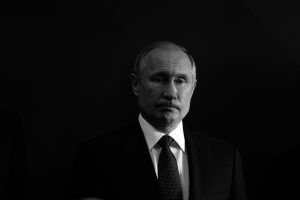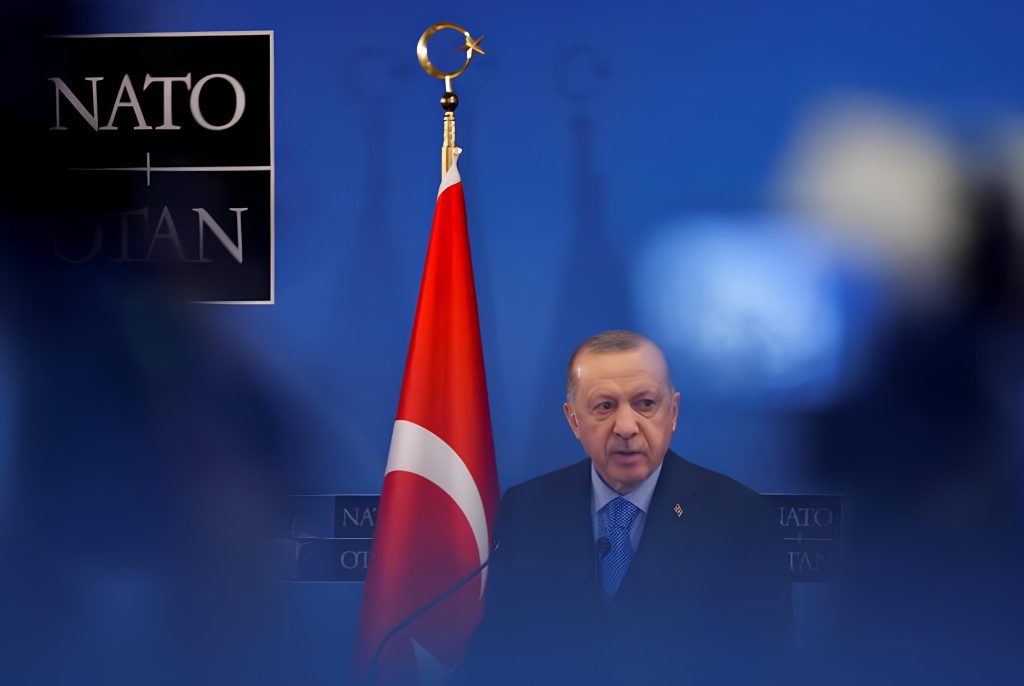
Türkiye’s balancing role within NATO and Ukraine’s potential membership will contribute to strengthening the alliance.
January 07, 2024

In today’s rapidly evolving global security landscape, NATO’s 2030 vision embraces the goal of contributing to regional stability by striking a balance between Türkiye’s influential mediation role and the strategic importance of Ukraine. In this context, the ongoing NATO membership negotiations between Sweden and Türkiye, coupled with the complex interplay of the Russia-Ukraine war, stand as pivotal factors shaping the alliance’s future.
NATO is a military alliance where 31 countries come together to make collective decisions and discuss security and defense issues. Its main purpose is to ensure security, develop partnerships, and counter new security threats together through practical cooperation and multilateral initiatives. The topic of NATO membership has been recently prominent on the agenda, with ongoing discussions about Sweden’s active negotiations with Türkiye and evaluations with other member states. Simultaneously, the Russia-Ukraine war, a significant global concern, unintentionally impacts and intertwines with these discussions, creating profound effects on both matters.
As of 2023, active negotiations are underway between Sweden and Türkiye for NATO membership, with evaluations ongoing with other member states. Meanwhile, Ukraine struggles to improve its relations with Russia, facing economic and military inadequacies. The European Parliament has approved 1.2 billion euros in aid to Ukraine, accompanied by an additional arms aid package worth $500 million. Croatian leader Zoran Milanovic expressed his perspective, stating, “The USA acknowledges its limitations in defeating Russia in Ukraine but continues to provide aid to Kyiv, prolonging the war and desiring European weakening.”
Looking towards 2030, it is foreseeable that Türkiye’s mediating role, acting as a bridge between Russia and NATO, will enhance the balance within the alliance. Additionally, Ukraine’s reliance on NATO becomes pivotal in addressing instability in the region. Türkiye, given its geopolitical location and historical context, holds the potential to safeguard NATO’s southeastern borders while simultaneously serving as a bridge between the East and the West. Strengthening cooperation with NATO while maintaining relations with Russia positions Türkiye to contribute significantly to regional stability. Mediation efforts by Türkiye can play a crucial role in balancing the interests of NATO member countries.
NATO stands as a reliable guarantor for Ukraine, especially considering potential decreases in European Union interest and investments in Ukraine by 2030. The shifting attitudes of surrounding states, exemplified by reduced support for Ukrainian refugees, further emphasize the significance of NATO’s role. Ukraine, historically influenced by Russian power, faces threats to its independence, particularly escalated by the ongoing war. NATO’s offer of membership provides a crucial perspective for Ukraine, contributing to the maintenance of security balance in the region.
Anticipating the changing strategic balances within NATO member states, Ukraine has a high probability of securing a place within NATO by 2030. This prospective membership could fortify Ukraine’s commitment to the alliance, compensating for potential declines in European Union interest. NATO’s concrete support to Ukraine on security and defense matters can offset diminishing European Union involvement and strengthen Ukraine’s position in the region.
In NATO’s 2030 vision, Türkiye’s role as a bridge and Ukraine’s aspirations emerge as pivotal factors contributing to regional stability. Türkiye’s mediation efforts have the potential to enhance balance within NATO, thereby bolstering regional security. Ukraine’s potential NATO membership is a critical step in maintaining the security equilibrium in the region. These factors collectively contribute to the vision of NATO as a more effective, robust, and adaptable alliance by 2030.
A curated seletion of FA’s must-read stories.
Written By: DILARA SAHIN
Written By: RIZWAN RAFI TOGOO
Written By: ERIC SONG
Written By: BATUHAN GUNES
Written By: E. ERDEN
Written By: SHOHREH POOLAB
Written By: ALEYNA TASTAN
Written By: CIHAN KAAN GAZI

Simay Dikici is currently studying at Yeditepe University, Department of Political Science and International Relations. She is active in the FAES club association, serves as a member of parliament and serves as a writer at the United Nations Summit. Her main areas of study are international law and diplomacy.
Written By: GABRIEL RAMIREZ
Written By: DILARA SAHIN
Written By: DILRUBA YILMAZ
Written By: NILAY CELIK
Written By: ELDANIZ GUSSEINOV
Written By: JOSEF SCHOEFL
Written By: SELCAN BEDIRHANOGLU
Written By: FATIH CEYLAN
FA’s flagship evening newsletter guilding you through the most important world streis ofthe day. Delivered weekdays.